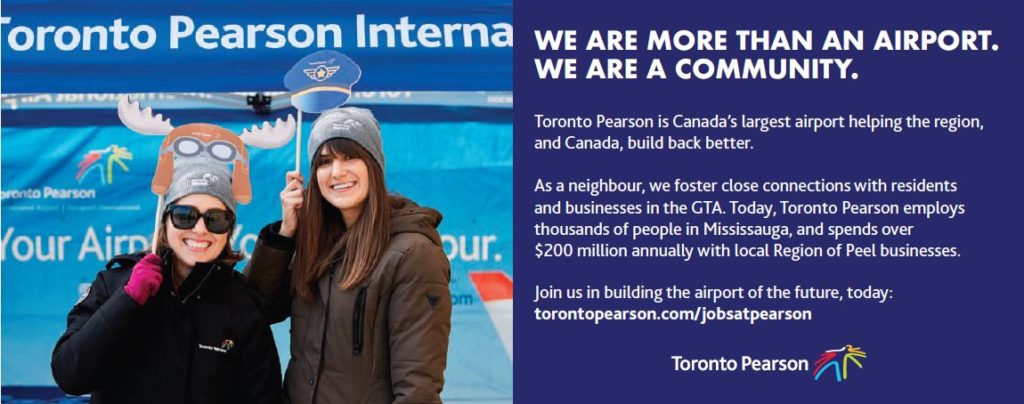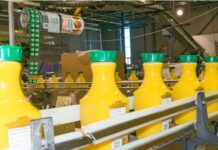Toronto Pearson is a driving force behind the Canadian economy. As the region emerges from the pandemic response, Pearson – located at the heart of Canada’s second-largest employment zone—is in a unique position to continue its role as an economic catalyst and critical piece of national infrastructure. The airport proudly employs over 13,000 Mississauga residents and procures over $200 million in goods and services from Peel businesses.
As Canada’s largest airport, the sixth-most-connected airport in the world and the second-most-connected airport in North America, Pearson is often the first and last impression international travellers have of Canada and provides a competitive advantage to businesses and the many industries that benefit from tourism. Before the pandemic, Pearson facilitated 6.3% of Ontario’s GDP, or $42 billion. The country’s economic well-being is intricately linked to how well Pearson connects Canada to the world.

While the pandemic challenged every aspect of the aviation industry, and the return to travel has required the airport to respond creatively and work together with government and industry to support hundreds of thousands of returning travellers, Tourism Mississauga, in partnership with the Mississauga Board of Trade (MBOT) recently recognized Pearson for the airport’s creativity and resilience in responding to the pandemic, naming Pearson the recipient of MBOT’s first-ever Mississauga Tourism Resiliency award.
As the pandemic evolved, the ability to get goods and services into the hands of business and, ultimately, consumers isolating at home became critical. While many know that cargo has always been a major part of Pearson’s operation, the pandemic really highlighted this fact. In mid-2020, air cargo became a literal lifeline, delivering personal protective equipment and vaccines, and meeting the supply needs of businesses. Pre-pandemic, Pearson processed 40% of Canada’s air cargo and was rated in the top 30 airports worldwide for cargo activity. In 2021, the average daily cargo activity at Pearson more than doubled versus 2019, underscoring the continuing importance of air cargo at Pearson to local communities, the Province of Ontario and the nation at large.
While airports touch travellers, businesses and consumers, they also play a role in the communities where they’re located. As a proud neighbour to Mississauga, Pearson has supported a growing number of organizations operating in the city through the airport’s community investment program, the Propeller Project. Pearson invests in initiatives, organizations and projects that create stronger, healthier and happier communities, including ACCES Employment’s work addressing underemployment and Brands for Canada’s goals to redirect goods from landfills to Canadian families.
This focus on the future of the community doesn’t stop there. Pearson prioritizes environmental stewardship and sustainability in all aspects of the airport’s operation, and has committed to a goal of net-zero emissions by 2050. Airport employees care about working for an organization that embodies sustainability through values and actions, and Pearson knows that neighbours hold the airport accountable for the way in which it manages and mitigates airport impacts.
Pearson is focused on creating the airport of the future—one that is healthier, more innovative, greener and more efficient. This is critical for Canada’s future economic growth and global competitiveness.
















